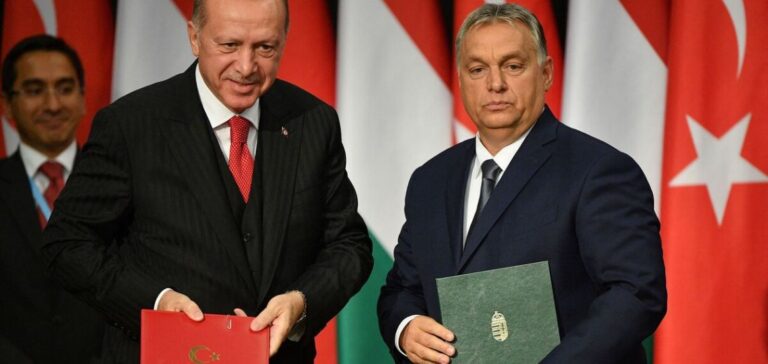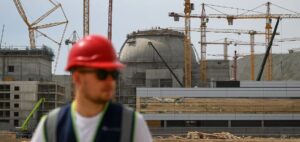Turkish President Recep Tayyip Erdogan met Hungarian Prime Minister Viktor Orban in Budapest on Sunday, against a backdrop of discussions on energy security and Sweden’s membership of NATO.
A new chapter in Hungarian-Turkish relations: Energy and partnership
Hungary has still not voted to approve the Nordic country’s entry into the Atlantic Alliance, aligning itself with Turkey, which blocked the issue for a long time before lifting its veto in July.
“As in Hungary, the members of the Turkish Parliament are on vacation and we can return to the issue at the autumn session,” said Foreign Minister Peter Szijjarto in a video posted on Facebook.
“We agreed to keep in touch.
The two countries also discussed strengthening their energy cooperation, as Hungary already receives a large proportion of its gas via the TurkStream pipeline, which transports Russian gas across the Black Sea. Budapest and Ankara will also be deepening their “strategic partnership”, an announcement to be made official during a new visit by Recep Tayyip Erdogan scheduled for December 18.
Diplomacy orchestrated by Orban: Sports meetings and energy agreements
The trip was part of a series of diplomatic meetings organized by Mr. Orban on the occasion of the World Athletics Championships, which opened on Saturday, and festivities celebrating the founding of the Hungarian state. Other dignitaries welcomed on Sunday included Serbian leader Aleksandar Vucic, President Ilham Aliev of Azerbaijan, President Sadyr Japarov of Kyrgyzstan and Serdar Berdymukhamedov of Turkmenistan, one of the world’s most reclusive countries.
Mr. Szijjarto praised “the close cooperation with Central Asia and the Western Balkans”, which is crucial to “overcoming the consequences of the current crises”, particularly the energy crisis. Serbia has promised to “provide the necessary transit capacity” if Ukraine decides to stop allowing Russian gas to pass through its territory to certain European countries, he added.
An agreement was also signed with Baku, providing for the storage of 50 million cubic meters of gas on Hungarian soil. Hungary, the only country in the European Union (EU) to have maintained ties with the Kremlin since the beginning of the war, has in recent years pursued a policy of opening up to the East, not only towards Russia, but also Central Asia and China. Viktor Orban, who defends “illiberal” values, was delighted to welcome his “political friends” on this weekend of celebrations, from which his Western partners, who regularly accuse him of authoritarian drift, were absent.





















